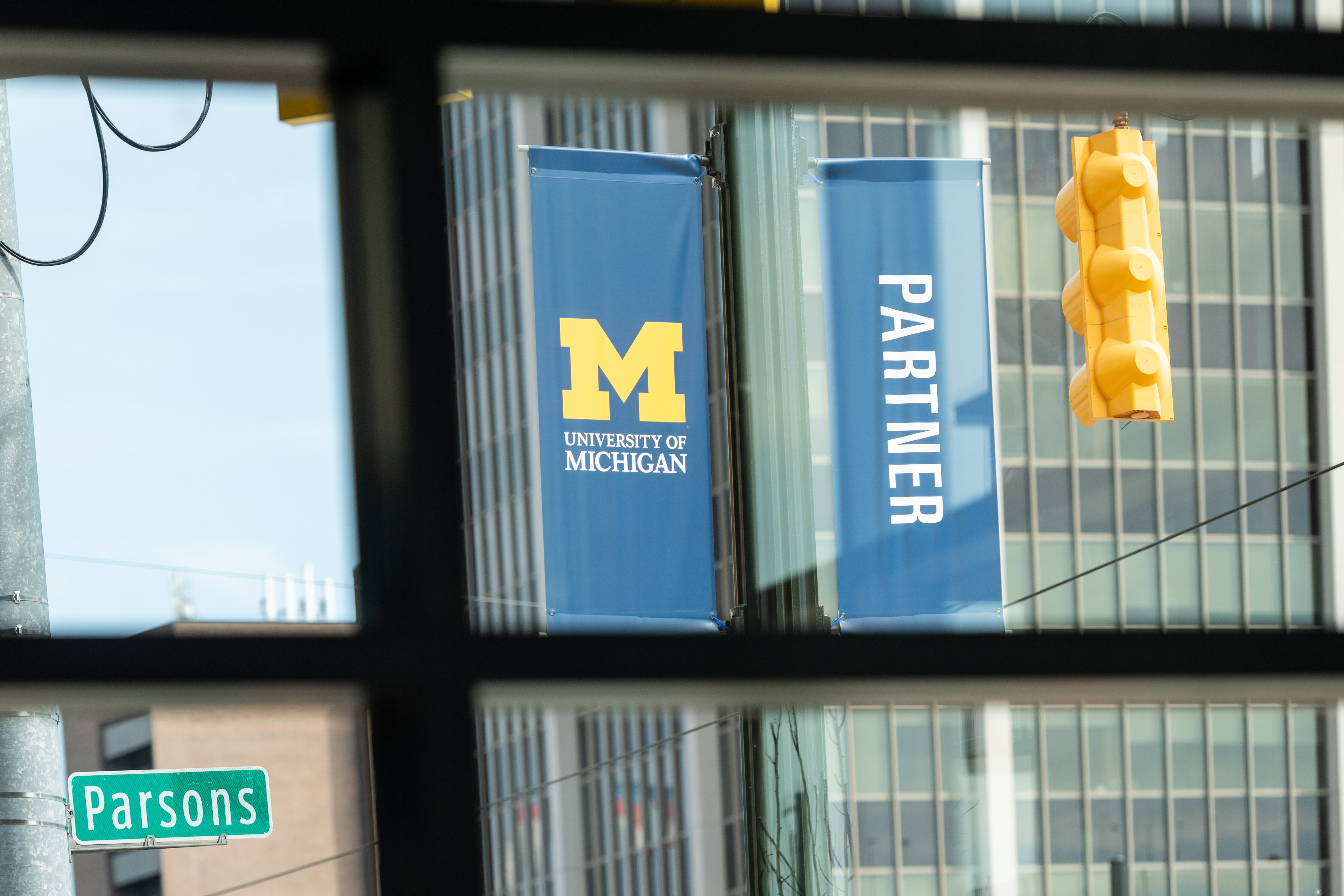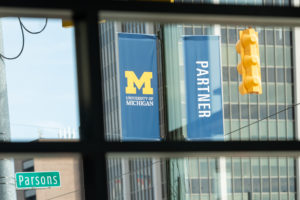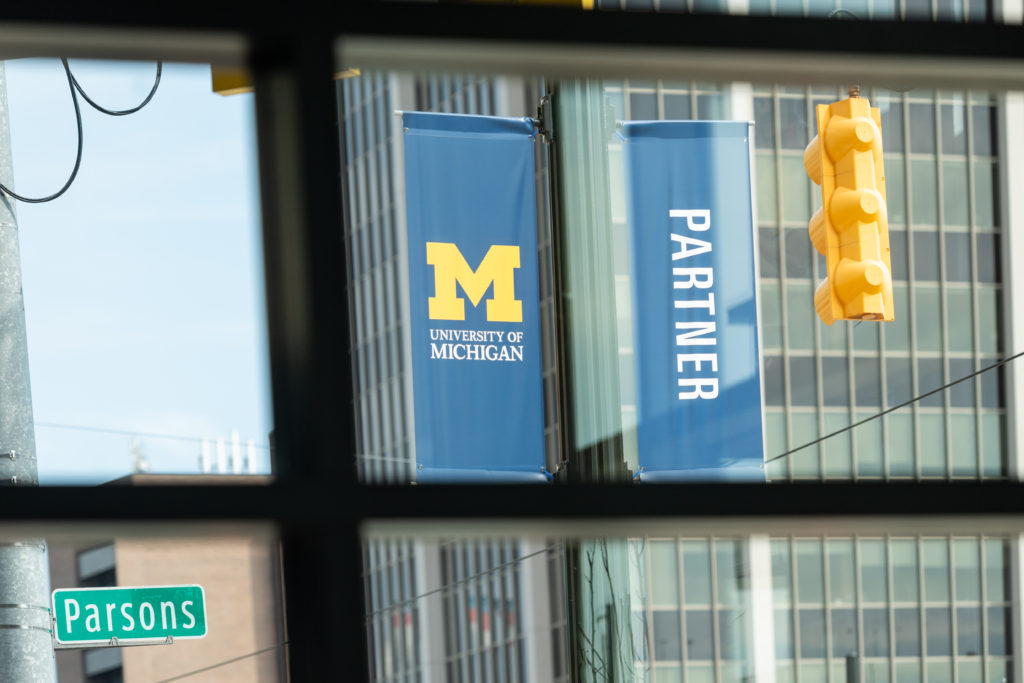Source: U-M Research

U-M banners on Woodward Avenue in Detroit.

U-M banners on Woodward Avenue in Detroit.
The Michigan Institute for Data Science will partner with Microsoft and the city of Detroit to expand digital equality by improving broadband internet access and affordability in underserved areas across the Motor City.
As the first academic partner in Microsoft’s Airband Initiative to expand digital equality in metropolitan areas, MIDAS will assist with comprehensive data acquisition to improve data quality and the application of statistical and machine learning models to generate granular indicators of digital access needs.
“Partnering with MIDAS brings deep rigor to guide evidence-based policies, actions and learnings to address the digital divide in Detroit, grounded in an understanding of local context,” said Vickie Robinson, general manager of the Airband Initiative. “These insights will be very valuable as we seek to increase access to affordable broadband, low-cost devices, and digital skilling resources in Detroit, and potentially establish replicable data tools that can be adapted for other places.”
As one of the least connected major U.S. cities, the need to close the digital divide in Detroit is significant. Over a third of households in Detroit lack broadband internet access, defined federally as a 25 megabits per second download speed and 3 megabits per second upload speed. Lack of access compounds dozens of other quality-of-life issues and dramatically affects access to education, the ability to find better jobs or to gain timely information about the COVID-19 pandemic.
“The digital revolution, pushed by rapid technological advancements, continues to drive society forward. For those who can afford it, expectations almost outpace the movement. But what about the 162.8 million Americans who are not using broadband internet partially due to lack of access or high costs,” said Jing Liu, MIDAS managing director. “MIDAS is working to build a partnership between Detroit’s data team and U-M data scientists, with the current focus on digital inclusion.”
Liu is working closely with Kat Hartman, Detroit’s director of data strategy and analytics, and Warren Flood, Microsoft’s philanthropies program manager to organize the collaboration.
Detroit appointed the nation’s first director of digital inclusion, Josh Edmonds, who founded Connect313, to implement digital inclusion strategies through a public-private partnership with the Detroit community in the driver’s seat. The research team will use machine learning and other data science methods to identify households and neighborhoods most in need of digital access. It will also recommend digital inclusion interventions and analyze the impact of digital inclusion on Detroit residents’ health, education, job placement, and other aspects of everyday life.
“We cannot solve a problem we don’t understand. The pandemic has shown that addressing digital inequity is too urgent to rely on bad data. With deeper data science, we can find the people left behind by the digital divide, connect them, and help them unlock opportunities to achieve more,” said Robinson.
More broadly, this collaboration will provide insight into Microsoft’s digital equality effort across multiple cities, create and leverage a new academic, government, and industry collaborative model to drive forward socially engaged research using the strengths of all different sectors.
Digital inclusion is just one of many U-M efforts where researchers and students support Detroit’s advancement and its residents’ well-being through research partnerships on topics ranging from COVID-19 and economic mobility to health equity and K-12 educational outcomes.
“Efforts to use data science for the social good also benefit academic researchers,” said Liu. “A partnership with Detroit and other public sector partners will enrich U-M data scientists’ research, by connecting academic research with real-world data to tackle significant real-world challenges, translating research outcomes into immediate societal impact.”


